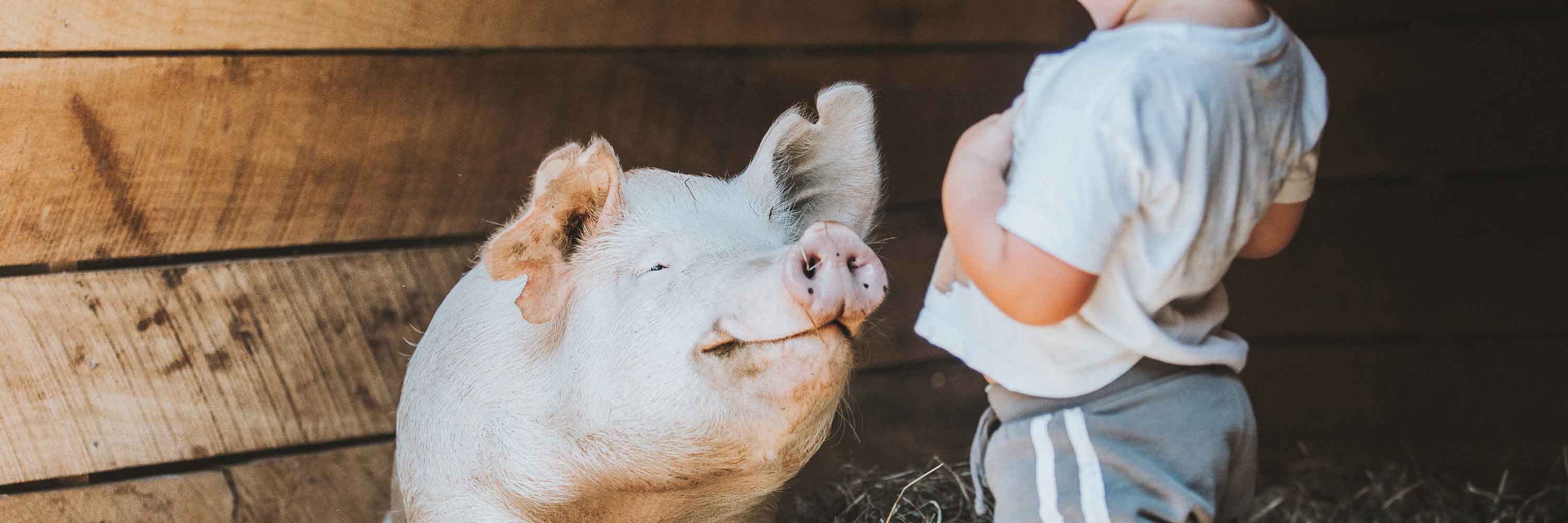
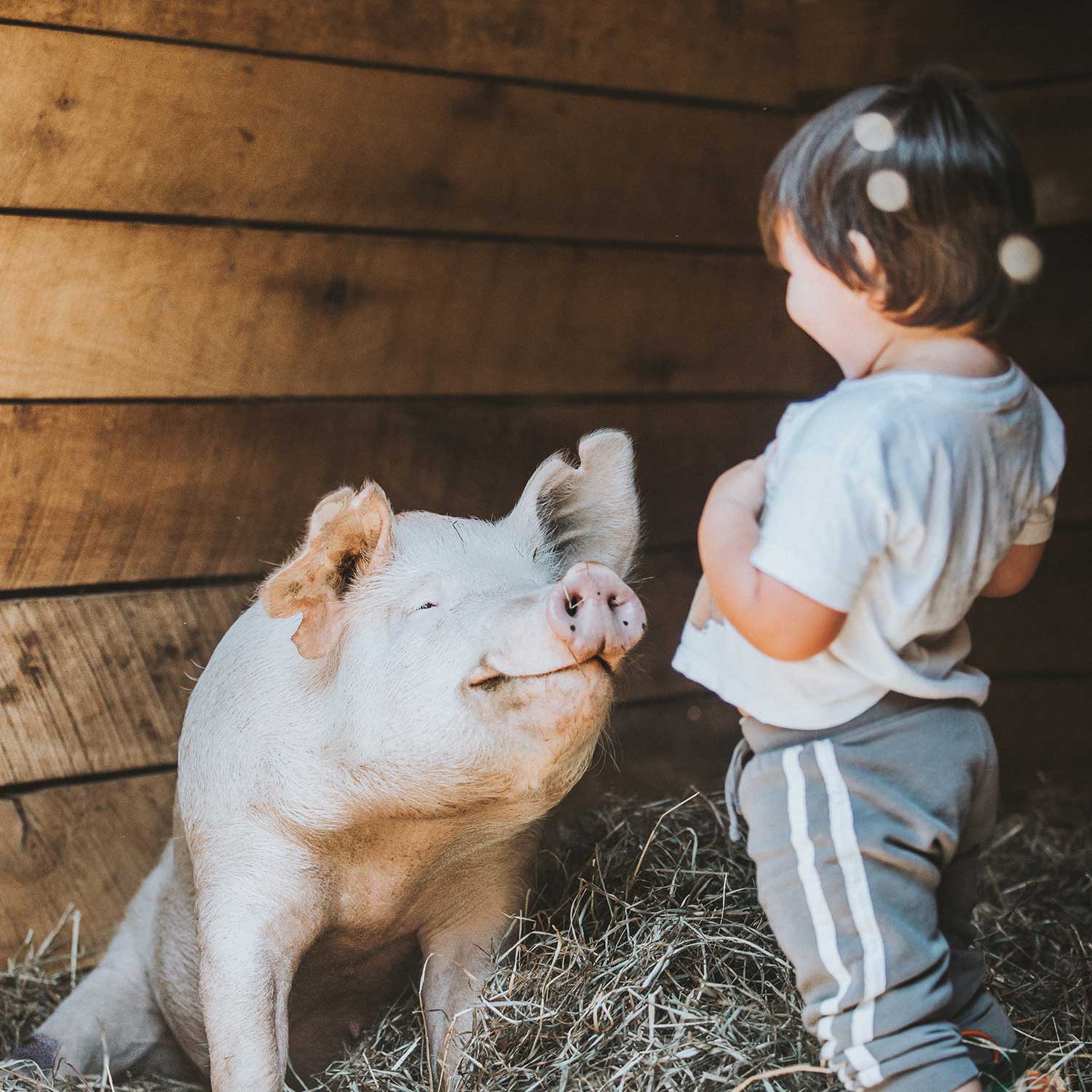
Powered by plants: 4 hidden benefits of eating plant-based
Here at Animal Equality, we savor the meaning and purpose behind each bite of plant-based food. It’s not just about what’s on our plates; it’s about the impact we create with every mouthful.
For you, perhaps that purpose is to spare animals from a life of suffering. Or maybe you’re on a quest for a healthier planet, a healthier community, and even a healthier you.
Regardless of what led you to explore the world of plant-based foods, one thing is clear: your choices carry weight. Each bite you take holds significance and purpose.
Let’s find out what you can accomplish with your most powerful weapon: your fork.
1. Choosing Compassion Over Animal Abuse
In the United States, a staggering 99% of farmed animals are raised on factory farms, where they endure extreme confinement, mutilations, and other forms of abuse. But by choosing plant-based foods, you can save around 300 animals per year!
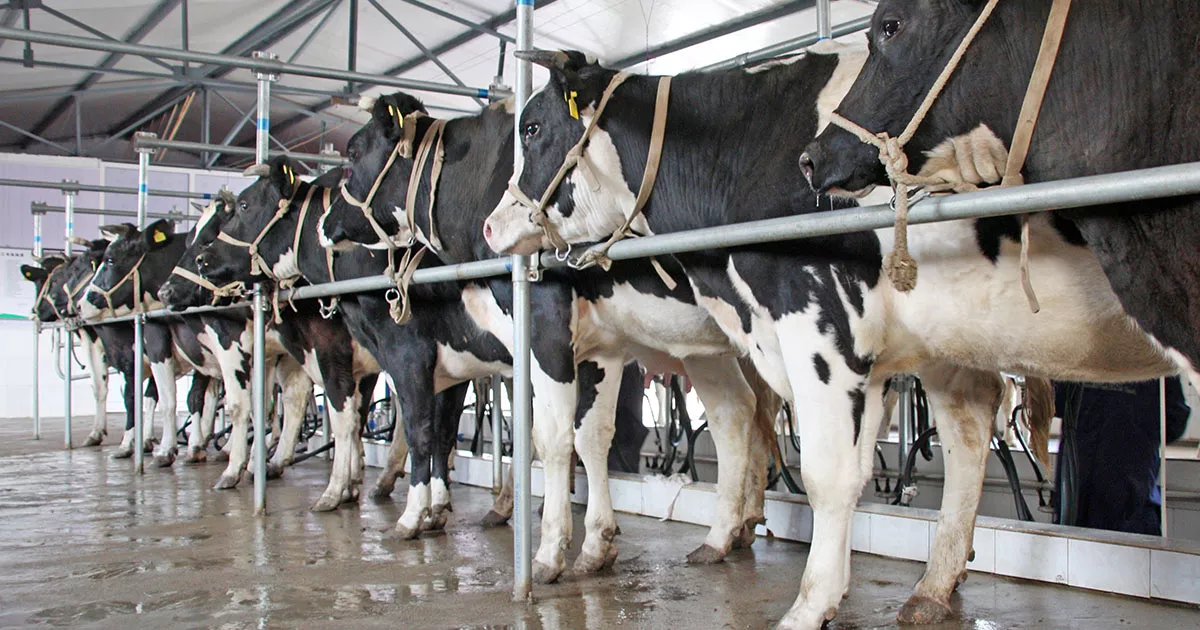
You value compassion, but the industry values profit. When you choose to eat a plant-based meal, you’re not just nourishing your body; you’re also cutting off the lifeblood of an industry steeped in corruption.
Let’s put this impact into perspective.
Did you know that many pregnant pigs in the United States are kept in cages that prevent them from turning around or taking more than a step forward? These pigs claw at the metal bars, foam at the mouth, and beg to be freed. Half of their lives will be spent in these “gestation crates,” where they will be repeatedly inseminated and forced to give birth.
Meanwhile, sick baby pigs are often left to die on factory farm floors, just feet away from their caged mothers. These piglets will never receive medical treatment because the industry doesn’t feel they’re worth the cost. Others will have their tails and teeth removed without anesthesia to prevent them from biting each other.
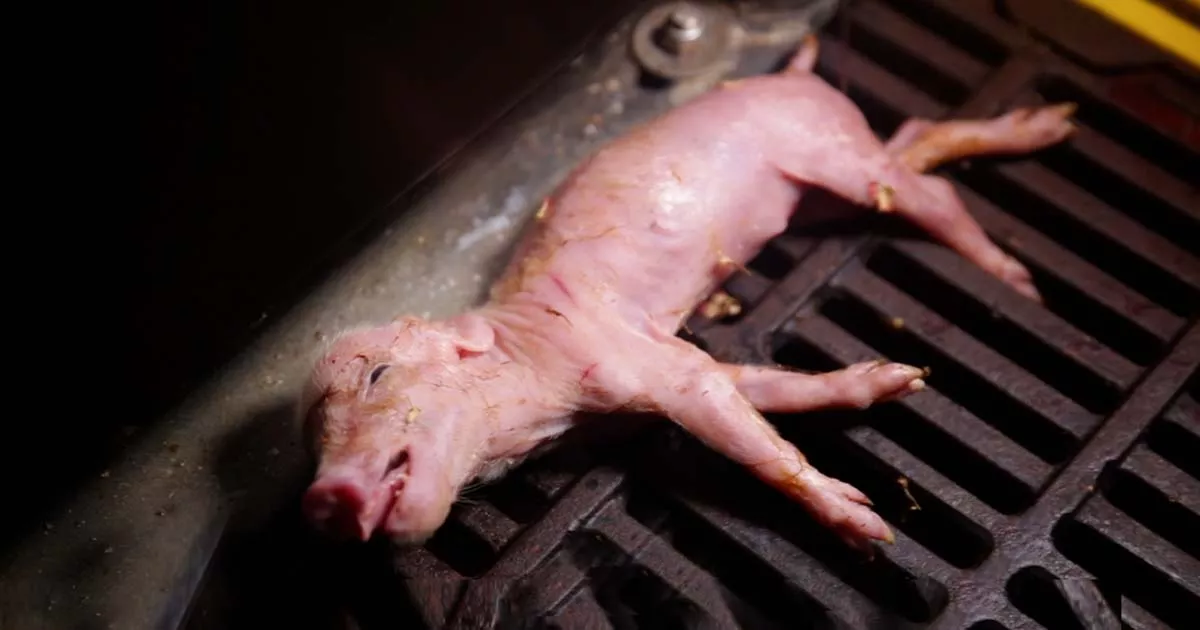
Each time you enjoy a plant-based sausage, reflect on its significance for these animals and pat yourself on the back. Not only are you saving lives, but you’re preventing the industry from hiding behind its “humane” labels. What could be more fulfilling than accountability?
But it’s not just the meat industry that gets away with animal abuse. Male baby chicks are shredded alive after birth, simply because they can’t lay eggs for the industry to sell and don’t grow large enough to be killed for their meat.
Meanwhile, hens who lay eggs are trapped in cramped, filthy cages, where they often die from disease. Those who survive trample their dead companions in the cage. When their bodies finally wear down from laying an unnatural number of eggs, they are often sent to the slaughterhouse. Many lay eggs on the way.
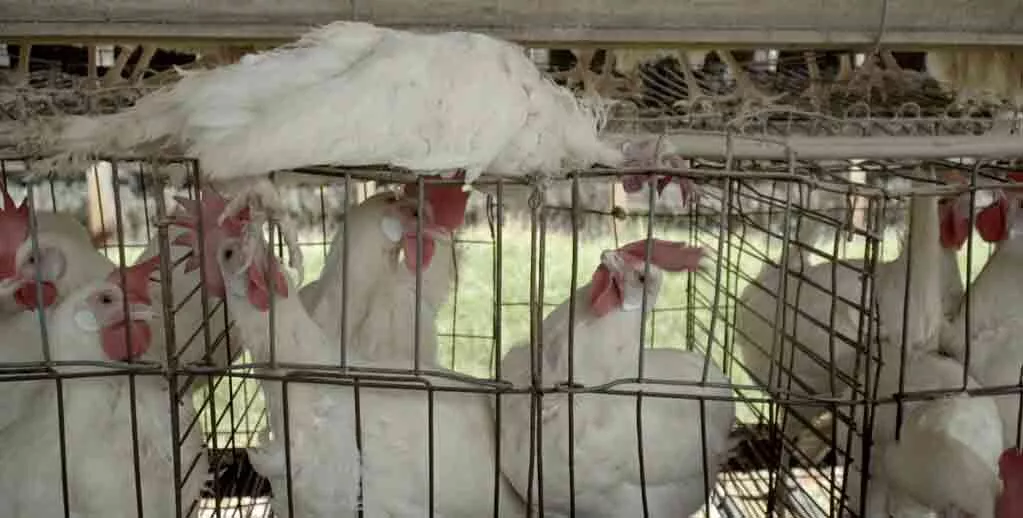
So, what’s a shopper like you to do? Pick up an egg replacement, of course! If you’re unsure where to start, throw a bottle of Just Egg in the cart and use it to create a compassionate version of scrambled eggs. On Saturday morning, you’ll breathe a sigh of relief as you weigh the significance of what’s on your plate.
But why stop there?
Investigations into the dairy industry have found mothers crying for their babies and running after them as they’re taken away. Mother cows only produce milk after giving birth, so they are impregnated repeatedly and have their babies taken from them to preserve the mother’s milk.
They will repeat this process until their tired bodies can no longer produce milk and they are sent to slaughter. Meanwhile, their calves are kept in extreme confinement, where they drink unnatural milk replacements.
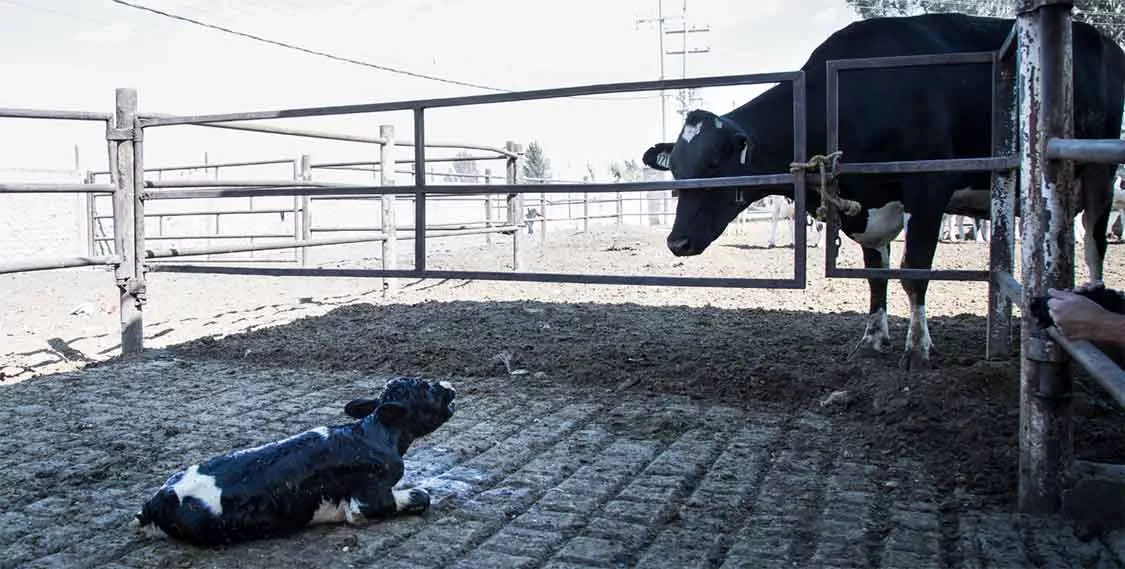
The good news is that drinking plant-based milk and eating plant-based cheese is easy. Simply pick up a carton of oat, soy, cashew, macadamia, almond, or rice milk (perhaps while throwing a pint of dairy-free ice cream in the cart?). Add a splash of dairy-free milk to your coffee, and you can sip your morning brew while knowing you spared animals from separation and pain.
What a meaningful way to start the day!
2. Choosing Health Over Heart Disease
Did you know processed meats–which include hot dogs, hamburgers, and chicken nuggets–have been declared a carcinogen by the World Health Organization?
That’s right – by switching to plant-based meals, you’re not just saving the lives of others. You could also spare your own by preventing cancer and other diseases.
But it’s not just processed meats that have been raising eyebrows in the medical community. Even fish and “white” meat have been associated with increased health risks.
In fact, the consumption of animal products–including dairy and eggs–correlates with heart disease, Alzheimer’s, hormonal imbalance, high blood pressure, high cholesterol, mental health disorders, erectile dysfunction, strokes, autoimmune diseases, and obesity.
Those who eat animal products are also at risk for diabetes.1 With the Western diet so dependent on these animal foods, it’s no wonder these diseases have skyrocketed.
Consider this: plant-based foods could add up to ten years to your life.2 The evidence is so compelling that author Dan Buettner, in his book and a documentary titled Live to 100: Secrets of the Blue Zones, explores regions with the healthiest and longest-living people in the world. From Okinawa to Sardinia and California, these hotspots share a common thread—diets that are predominantly plant-based.
Meanwhile, athletes from all walks of life are increasingly turning to plant-based foods to level up their performance.
A popular documentary called Game Changers, which was narrated by a mixed martial artist and defense instructor, combats the “meat is manly” myth. It features world-renown athletes and soldiers who have made the switch or began experimenting with a plant-based diet.
This includes Patrik Baboumian, a world record holder, powerlifter, and outspoken animal defender; Bryant Jennings, a former boxer; dozens of football players; and other household names. Even the iconic Arnold Schwarzenegger touts the benezfits of plant proteins and regularly enjoys vegan meals.
The documentary, backed by heavyweights like James Cameron, Arnold Schwarzenegger, Jackie Chan, and Lewis Hamilton, shows once and for all that plant-based living is healthy for body and mind.
3. Fueling the Fight for our Planet
The effects of climate change are all around us. Whether it’s fires, hurricanes, flooding, or other natural disasters, human suffering plagues the news.
But we can turn the tide, and it’s easier than you might think!
Sure, you’ve heard about recycling, carpooling, and ditching plastic, all of which are steps in the right direction. But there’s a sneaky industry that’s been lurking in the shadows, avoiding its fair share of scrutiny: the factory farming industry.
When you opt for a plant-based meal, you’re not just nourishing yourself; you’re also fighting an industry that’s been quietly wrecking the planet.
Animal agriculture is a significant contributor to greenhouse gas emissions, deforestation, and water pollution. Not only is most of the Amazon rainforest cleared for cows’ grazing land, but huge swaths of land are used to grow food for farmed animals. Think soy, wheat, and corn, the staples of our diets.
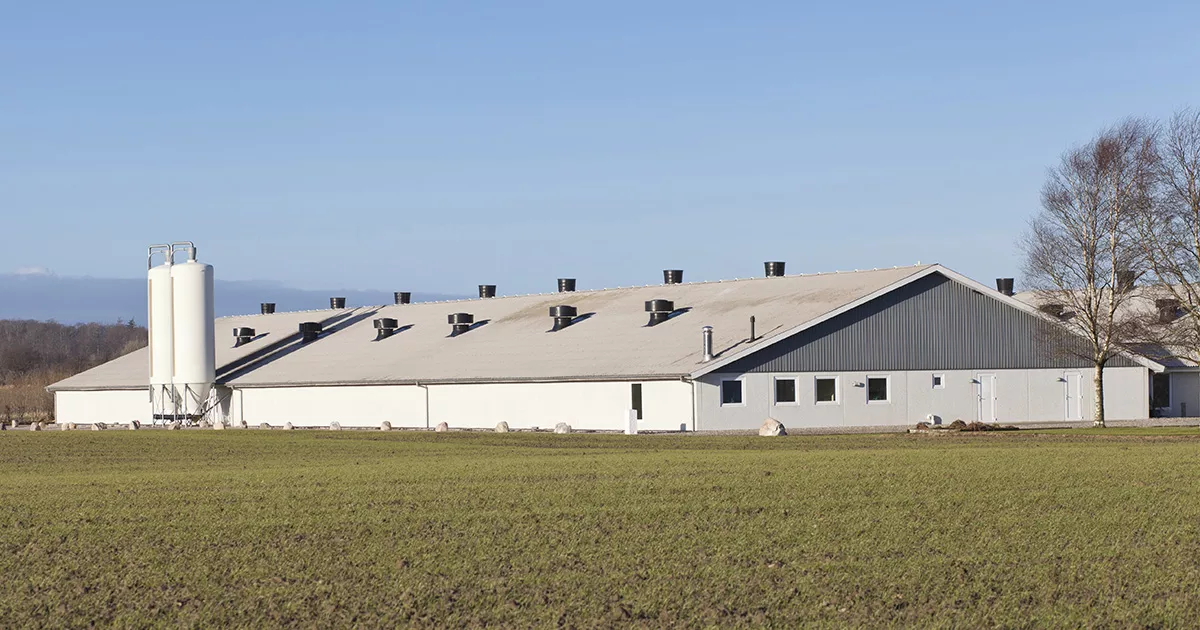
In fact, almost 80% of the soy goes to feed animals…and just 7% ends up on our plates.3
The impact? Catastrophic. Habitats around the world are under siege. The once-pristine North American grasslands, Amazon rainforests, the Congo Basin, and forests in the eastern Himalayas are all at risk. These ecosystems are hanging by a thread, and their collapse is sending plants and animals hurtling towards extinction.
So, next time you see someone wagging their finger at cars and airplanes, remind them that the food on their plate might be an even bigger concern.
The power to save our planet is on your plate. Choose wisely!
4. Choosing Community Over Scarcity
We produce enough food every year for the billions of animals raised and slaughtered for animal products. So, why can’t we redirect those resources and feed less than 8 billion humans?
The factory farming industry has a big appetite for resources, and it’s not just food. It also guzzles down fresh water while many humans around the globe still go without.
Indigenous lands in developing countries are bulldozed to make way for factory farms, while the majority of calorie-rich meat, dairy, and eggs end up on the plates of wealthier nations. Meanwhile, billions of people struggle with food insecurity. By some estimates, creating a plant-based world could significantly reduce world hunger.4
Even within the United States, factory farms set up shop in urban areas with lower incomes. People of color often bear the brunt of this burden, dealing with water contamination, air pollution, and the stench of animal waste in their neighborhoods.
And with heart disease, diabetes, and high cholesterol rates being higher in African-American communities, these communities are rising up, demanding better health for themselves and their loved ones.
And guess what? Studies have shown that Black Americans are leading the charge, being nearly three times as likely as their White counterparts to embrace a vegan diet.5 It’s a powerful statement, a leap toward better health.
Ready to start your plant-based journey?
Every time you choose plant-based, you’re saying “no” to the shady dealings of the factory farming industry and “yes” to a healthier you. Your plate isn’t just a meal; it’s a mission for animals, the planet, human health, and equality.
Love Veg makes it easy to discover plant-based living. Each recipe will take you on a culinary journey, where you’ll find purpose, meaning, and fulfillment.
What are you waiting for? Let’s get cooking!
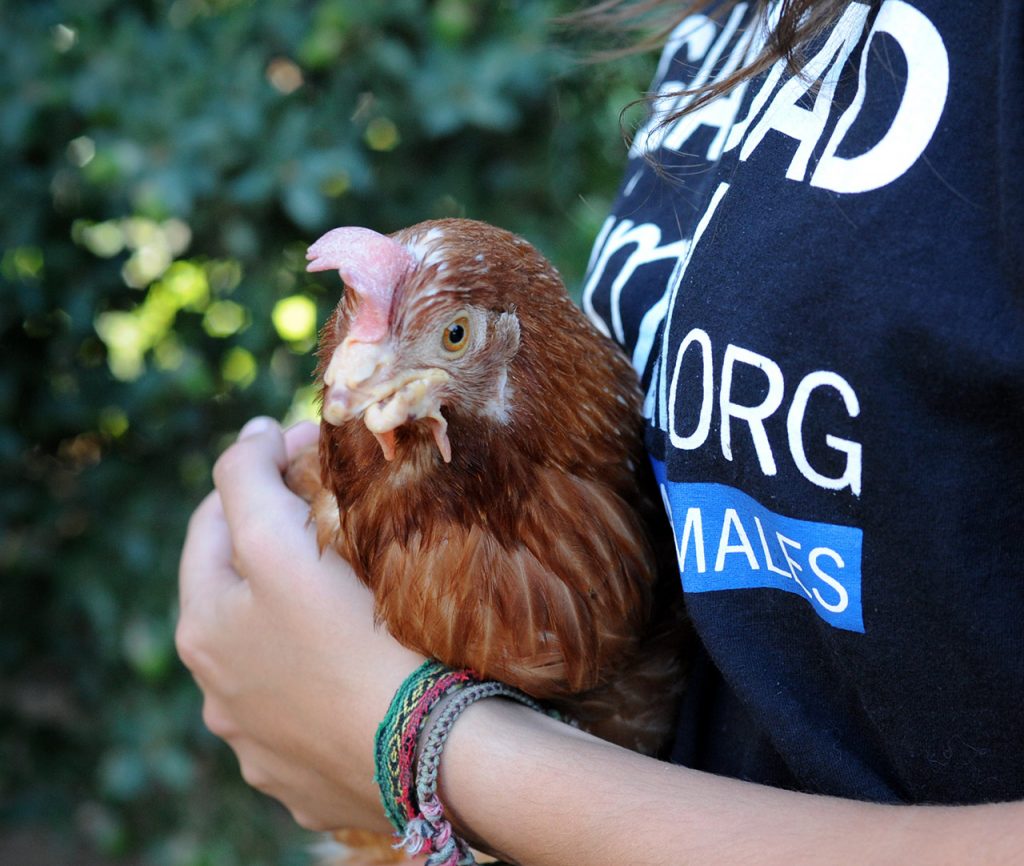
LIVE KINDLY
With rich emotional lives and unbreakable family bonds, farmed animals deserve to be protected.
You can build a kinder world by replacing animal food products with plant‑based ones.
- Physicians Committee for Responsible Medicine. (n.d.). Diabetes. https://www.pcrm.org/health-topics/diabetes
- Fadnes, L. T., Økland, J.-M., Haaland, Ø. A., & Johansson, K. A. (2022). Estimating impact of food choices on life expectancy: A modeling study. PLoS Medicine, 19(2), e1003889. https://doi.org/10.1371/journal.pmed.1003889
- Ritchie, H. (2021). Is our appetite for soy driving deforestation in the Amazon? Our World in Data. https://ourworldindata.org/soy
- Cassidy, E. S., West, P. C., Gerber, J. S., & Foley, J. A. (2013). Global, regional, and national fossil-fuel CO2 emissions. Environmental Research Letters, 8(3), 034015. https://doi.org/10.1088/1748-9326/8/3/034015
- Reynolds, I. (2023, February 8). Black Americans are increasingly embracing vegan diets, but many face challenges like food deserts and cultural resistance. Business Insider. https://www.businessinsider.com/black-americans-vegan-diets-food-deserts-2023-2

